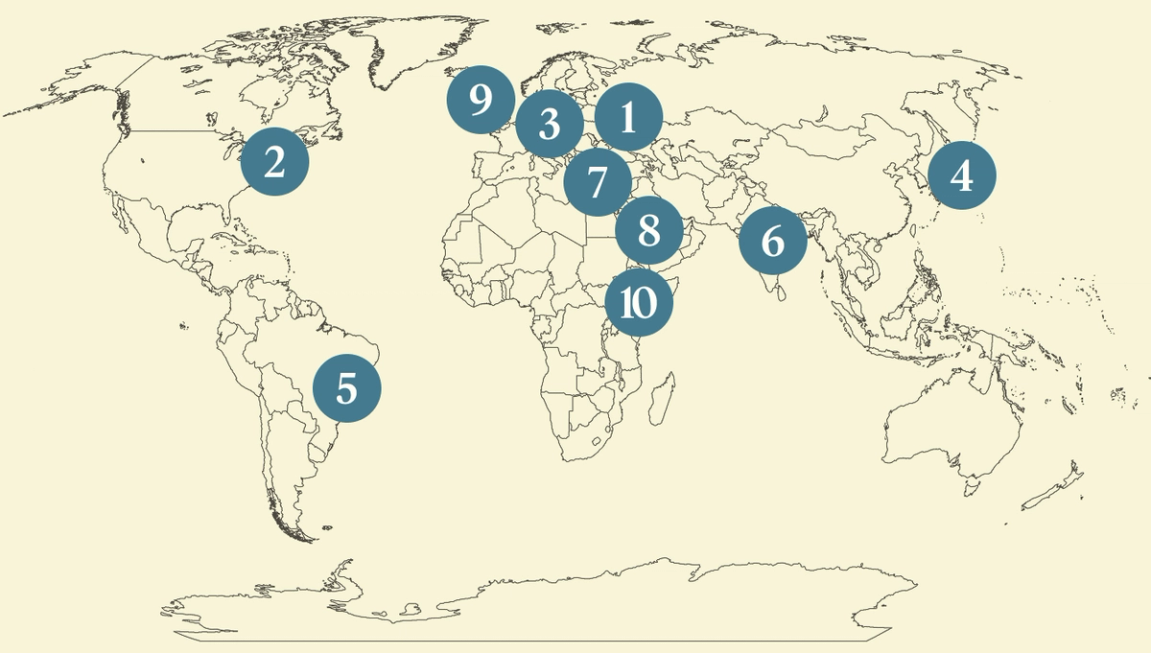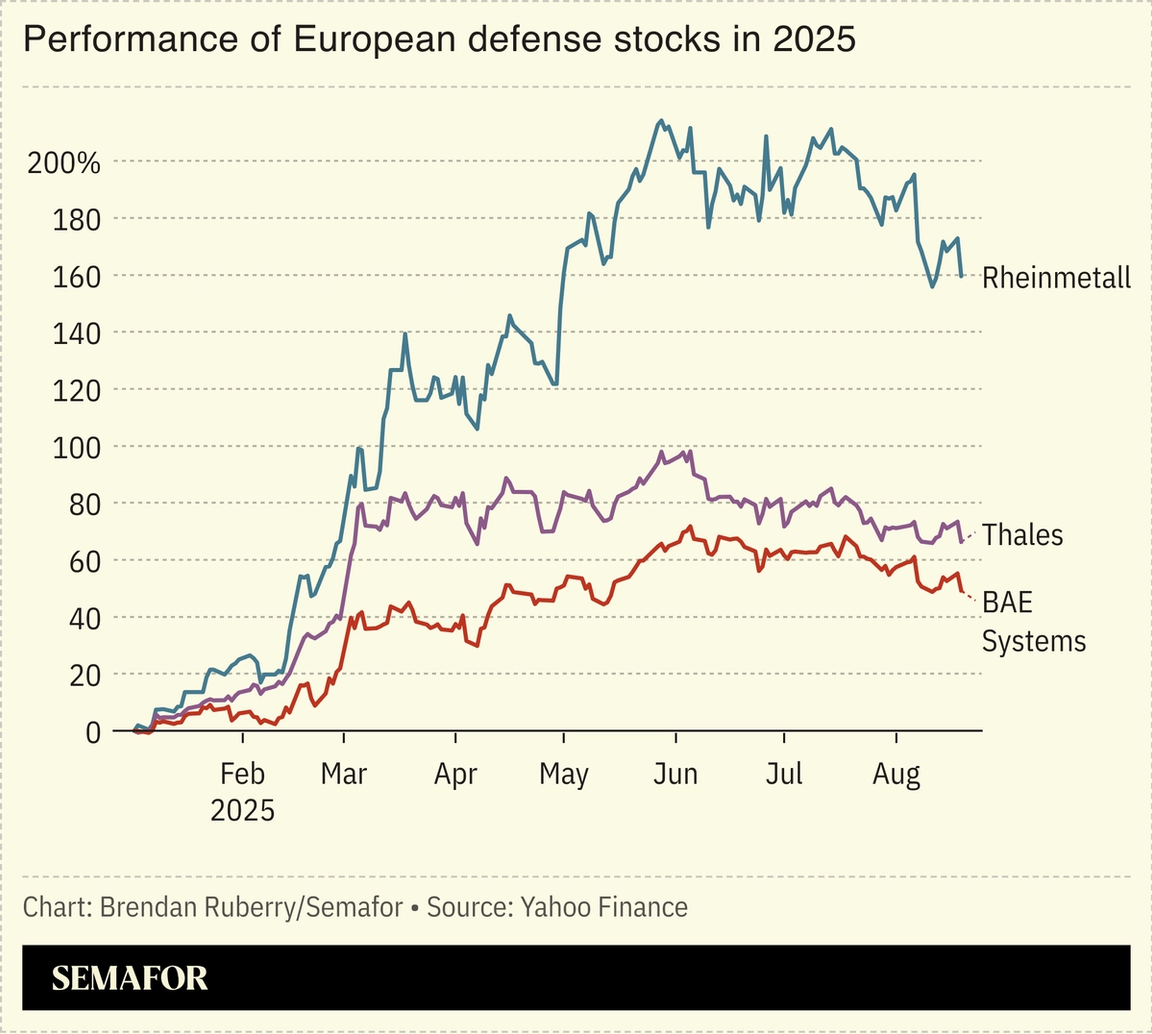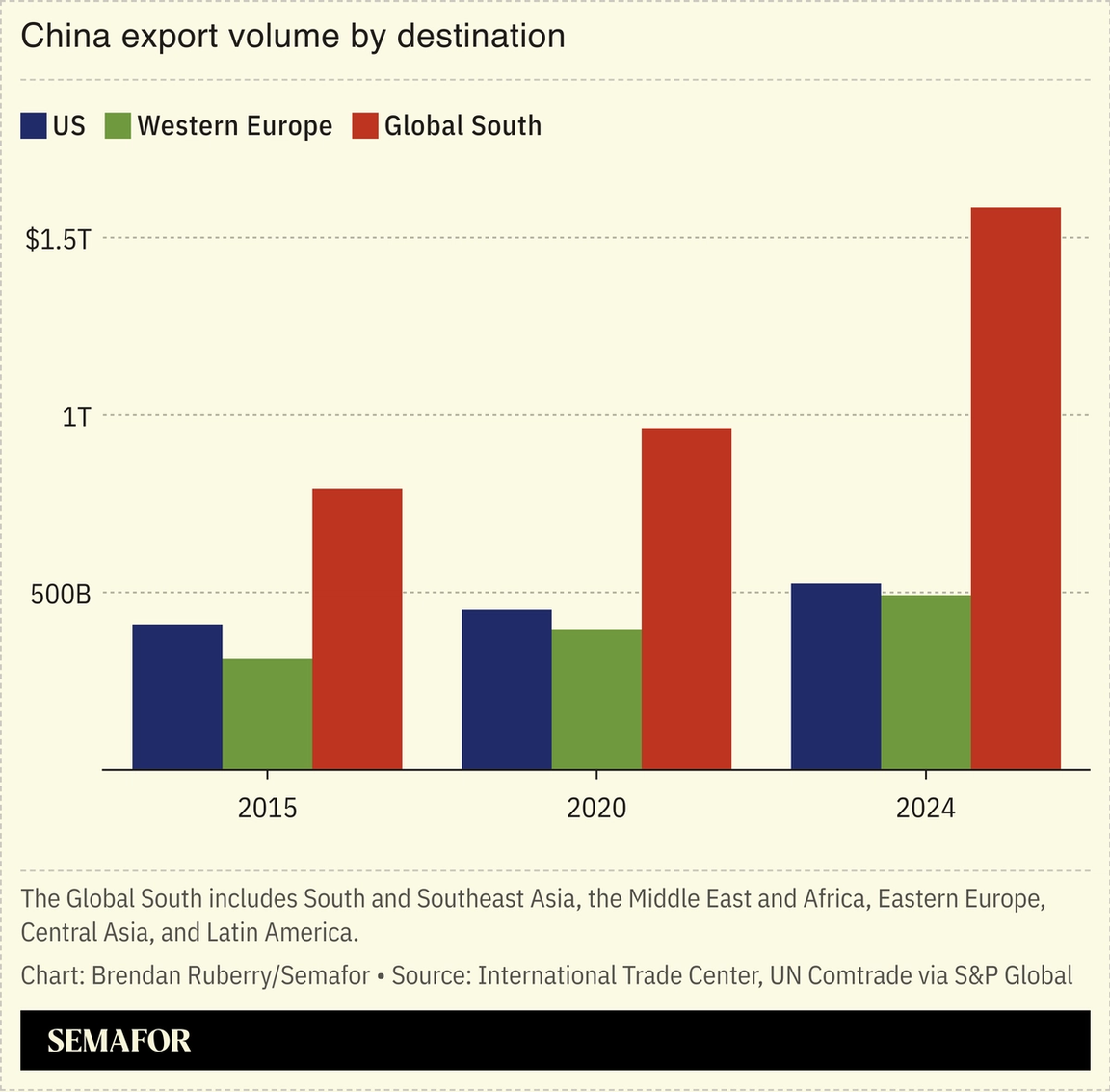| | Donald Trump rules out sending US troops to Ukraine, India and China steadily thaw ties, and teeth h͏ ͏ ͏ ͏ ͏ ͏ |
| |   JERUSALEM JERUSALEM |   ADDIS ABABA ADDIS ABABA |   TOKYO TOKYO |
 | Flagship |  |
| |
|
The World Today |  - No US troops in Ukraine
- Trump as peacemaker
- EU defense expansion
- Japan’s warship bid
- China’s Global South pivot
- India, China thaw ties
- Netanyahu lashes out
- Neom’s desert ski resort
- Return to US offices
- New species of humanity
 Women artists who faced restrictions on painting nudes, but not cadavers. |
|
Trump says no US boots in Ukraine |
 Viacheslav Ratynskyi/Reuters Viacheslav Ratynskyi/ReutersUS President Donald Trump on Tuesday ruled out sending US troops to defend Ukraine from future Russian attacks, further muddying the security guarantees Washington plans to offer Kyiv. European leaders and Ukraine’s president left the White House Monday somewhat relieved by Trump’s assurances to protect post-war Ukraine, but so far the US leader has offered little in the way of details beyond suggesting potential air support. The White House on Tuesday also touted progress toward arranging a meeting between Russia’s Vladimir Putin and Ukraine’s Volodymyr Zelenskyy, with plans underway to determine a location, but Moscow is yet to commit and a top Kremlin official appeared to scoff at the prospect, The New York Times reported. |
|
Trump’s peacemaking is flawed |
 Alexander Drago/Reuters Alexander Drago/ReutersUS President Donald Trump is on a mission to win the Nobel Peace Prize, but his peacemaking efforts are fundamentally flawed, analysts argued. Trump has taken credit for an array of ceasefires, deals, and cessations of hostilities, claims of success that are “based on a profound fallacy: that peace merely entails an end to fighting,” a former US envoy to NATO wrote. And the Financial Times’ Europe editor said that the US leader’s “peace juggernaut” when it came to pressing for an end to the war in Ukraine prioritized form over substance. Temporary peace deals don’t address historical grievances, a Chinese expert added, and Trump’s “heavy-handed” mediation could backfire, leading to more global confrontation. |
|
EU defense spending to increase |
 European defense stocks fell Tuesday after the US pushed for talks between Ukraine and Russia, but analysts insisted any deal would drive the continent to increase defense spending regardless. European arms manufacturers’ shares have more than doubled since the start of 2025 amid the threat from Moscow and concerns about Washington’s commitment to allies. But even the prospect of peace between Ukraine and Russia will see Europe bolster support to Kyiv, JPMorgan and HSBC analysts said. European defense factories are expanding at three times the rate of peacetime, satellite analysis by the Financial Times showed, suggesting that Europe’s defense revival is “beginning to materialize not just in policy rhetoric or spending pledges but also in concrete and steel.” |
|
Tokyo eyes military exports |
 David Mareuil/Anadolu Agency via Getty Images David Mareuil/Anadolu Agency via Getty ImagesJapan’s sale of 11 warships to Australia has boosted Tokyo’s confidence that it could build out a defense sector at a tense time for Indo-Pacific security. The successful naval bid is set to be Japan’s largest-ever defense contract, marking a breakthrough for the industry in a country known for its pacifist stance, The Japan Times wrote. Tokyo is now reportedly eyeing opportunities to provide ships to Southeast Asian nations, as it signals to China and North Korea that it has close regional partners to deter aggression, analysts said. The defense push also comes as Japanese leaders look to reduce security dependence on the US as President Donald Trump upends global alliances. |
|
Beijing’s pivot to Global South |
 China’s exports increasingly reflect shifting global geopolitics and its own changing domestic industrial priorities, new data showed. Years of US tariffs dating back to the first Trump administration have driven Chinese companies to ramp up business with the developing world. Chinese exports to the so-called Global South now amount to more than 1.5 times that of the country’s sales to the US and Western Europe combined, a new S&P report found: The firm said the shift could power “a new order of global commerce where South-South trade becomes the new center of gravity.” Chinese government data, meanwhile, showed surging exports of electric vehicles and lithium-ion batteries, sectors key to the global energy transition which the country dominates. |
|
India, China hail ‘stable ties’ |
 India’s Press Information Bureau/Handout via Reuters India’s Press Information Bureau/Handout via ReutersIndia’s leader hailed “stable ties” with Beijing after meeting China’s foreign minister on Tuesday, as the Asian neighbors — both under pressure from Washington — look to rebuild relations. In what an Indian official called an “upward trend” in ties after a 2020 border clash, Beijing vowed to address New Delhi’s need for rare earths, and India’s prime minister confirmed he would soon make his first visit to China in seven years. Analysts say the easing of tensions could gain momentum from US President Donald Trump’s tariff threats on both. “Renowned for his claims of mediating peace between rival nations, Trump may have inadvertently set the stage for an unexpected thaw in India-China ties,” The Times of India wrote.
|
|
Netanyahu lashes out at France, Australia |
 Ronen Zvulun/Reuters Ronen Zvulun/ReutersIsraeli Prime Minister Benjamin Netanyahu lashed out at the leaders of Australia and France over their pledges to recognize a Palestinian state. Netanyahu on Tuesday called Australia’s Anthony Albanese a “weak politician who betrayed Israel and abandoned Australia’s Jews,” and in a letter to Emmanuel Macron, blamed the French president’s calls for Palestinian statehood for fueling antisemitism in France. Netanyahu is facing intensifying international isolation — Australia and France are among a number of major nations to pledge forthcoming recognition for a Palestinian state — and domestic discontent over his country’s war in Gaza. Mediation efforts have accelerated, but a 60-day ceasefire proposal could falter over Israel’s demand for Hamas to release all 50 hostages. |
|
Saudi ski resort troubles |
 Illustration via Neom Illustration via NeomThe troubled development of a $20 billion ski resort in the desert has become symbolic of the challenges facing Saudi Arabia’s Vision 2030 plan. Meant to feature skiable rooftops and a man-made lake, Trojena — situated in the futuristic megacity, Neom — may need to be drastically scaled down to ensure it can host the 2029 Asian Winter Games, Bloomberg reported. The difficulties are among several facing the kingdom’s “giga projects,” which were written-down this week by $8 billion as cost overruns mount and state coffers are squeezed by falling oil prices. The slower-than-expected pace of economic change may undermine social reforms, which had bought the government goodwill: “As the novelty wears off… expectations will grow,” The Economist wrote. |
|
Return to office in US, not UK |
 John Lamparski/AFP via Getty Images John Lamparski/AFP via Getty ImagesThe return to the office is gathering pace in the US, although less so across the Atlantic. JPMorgan expects its staff will come in: Its $3 billion New York office opens in October, while it is planning a new tower in London. US banks are summoning workers back, with 11 of the top 15 North American financial institutions demanding at least four days a week in the office. But just seven out of the top 15 European banks do likewise, Bloomberg reported, highlighting a transatlantic disagreement on the future of work: “We work with adults,” one top UK banking executive said to explain his support for remote work. |
|
New species of humanity uncovered |
 Reproduction of two Australopithecus africanus skulls. Universal History Archive/Universal Images Group via Reproduction of two Australopithecus africanus skulls. Universal History Archive/Universal Images Group via |
|
|